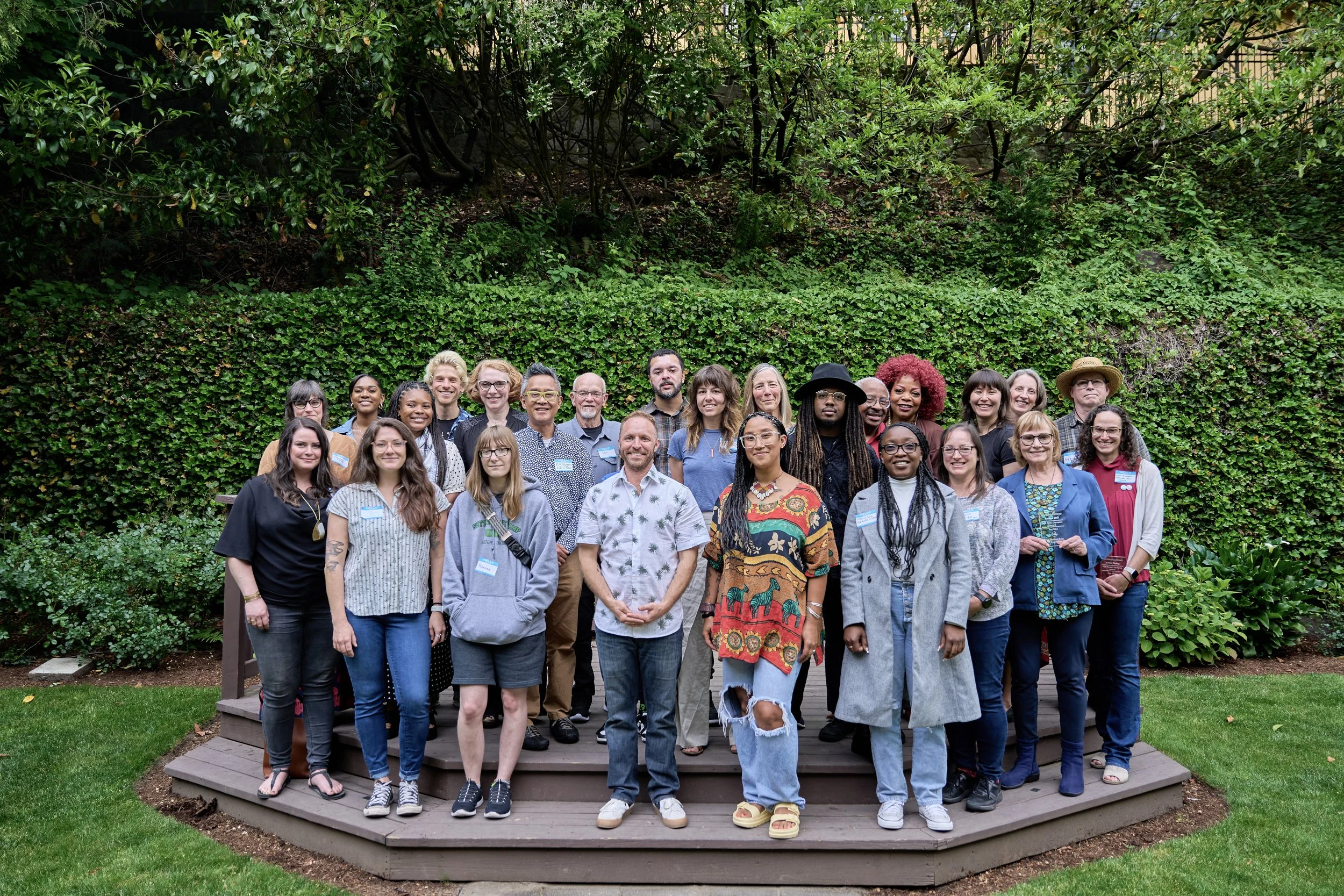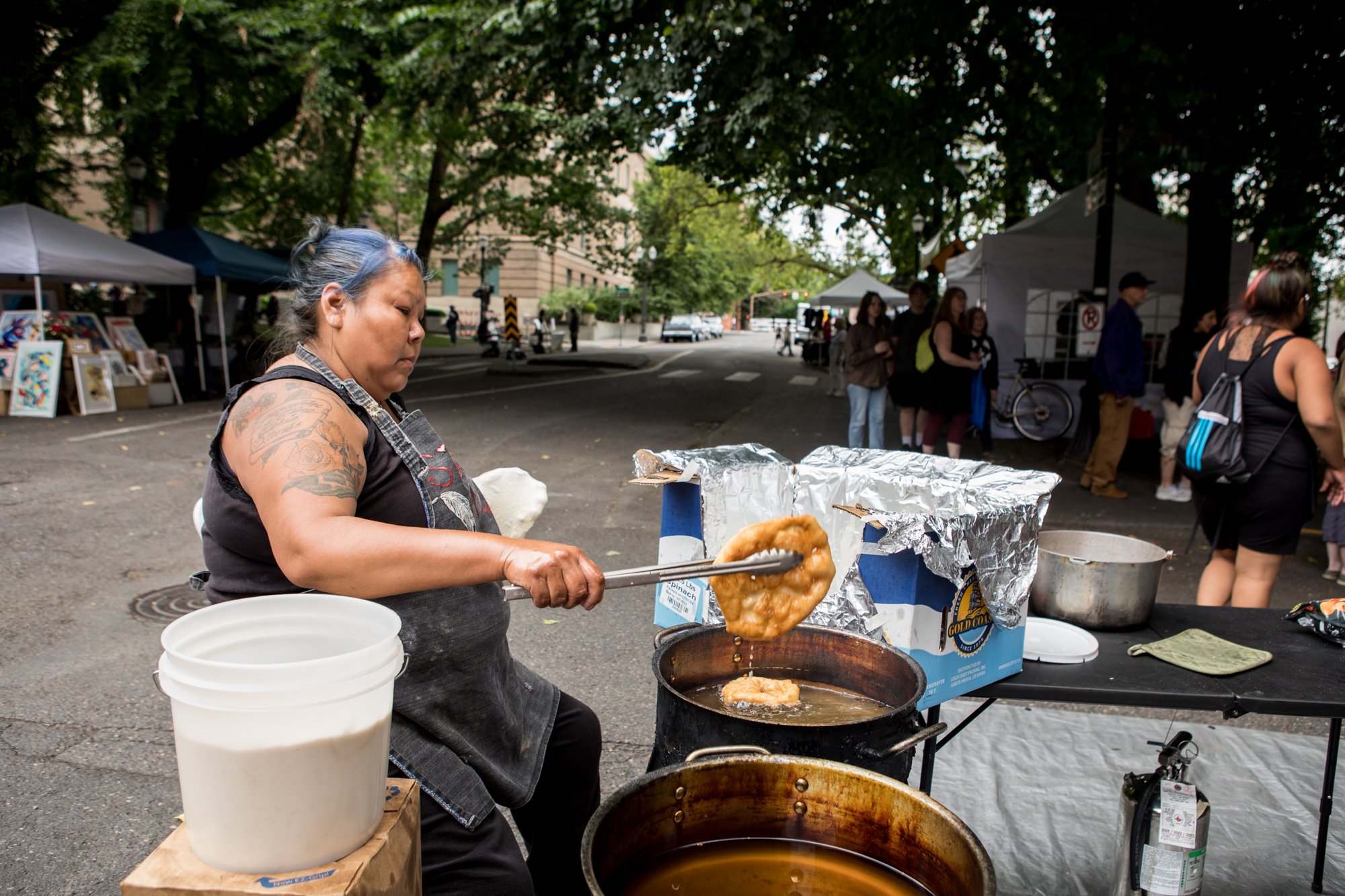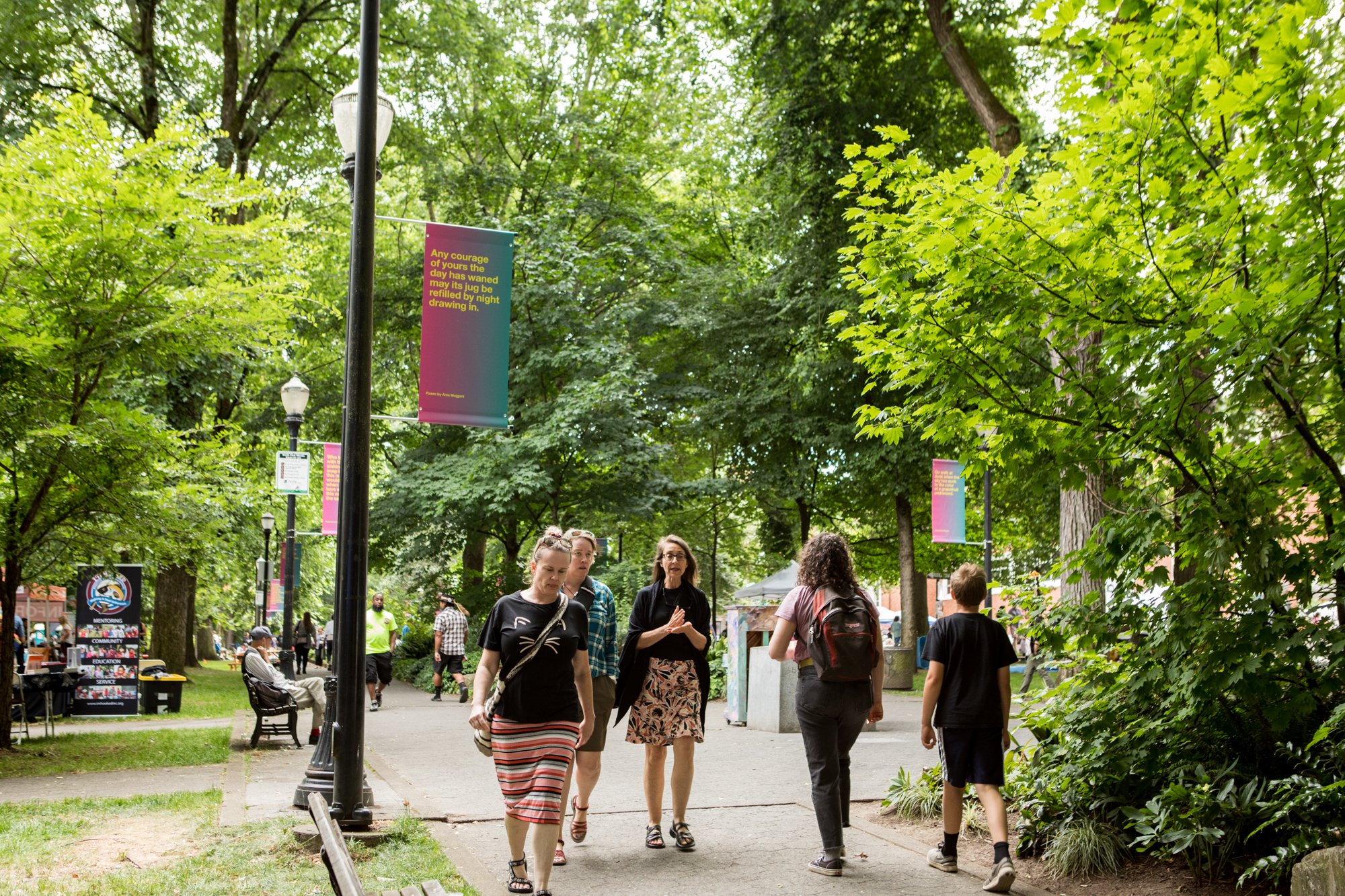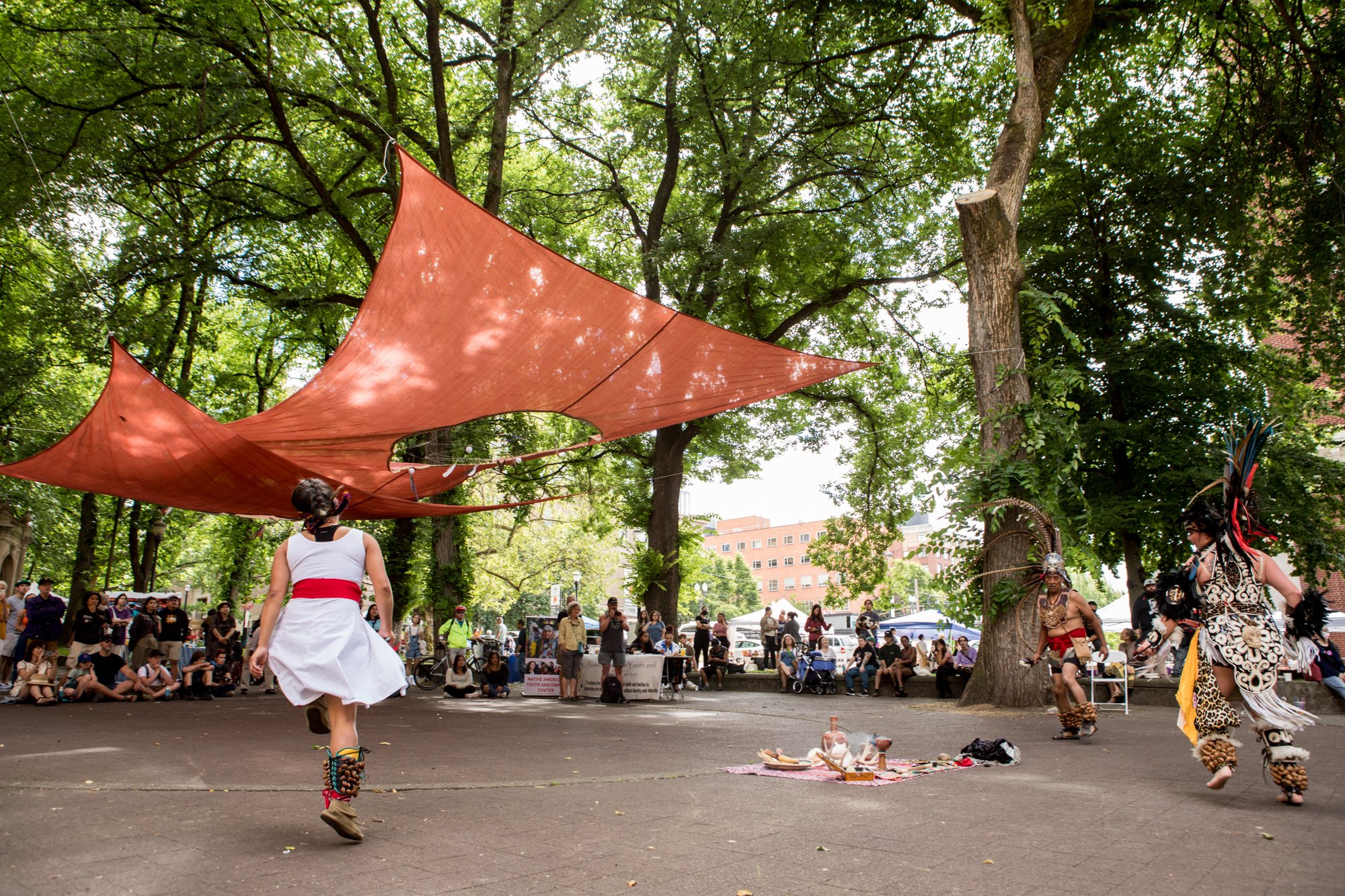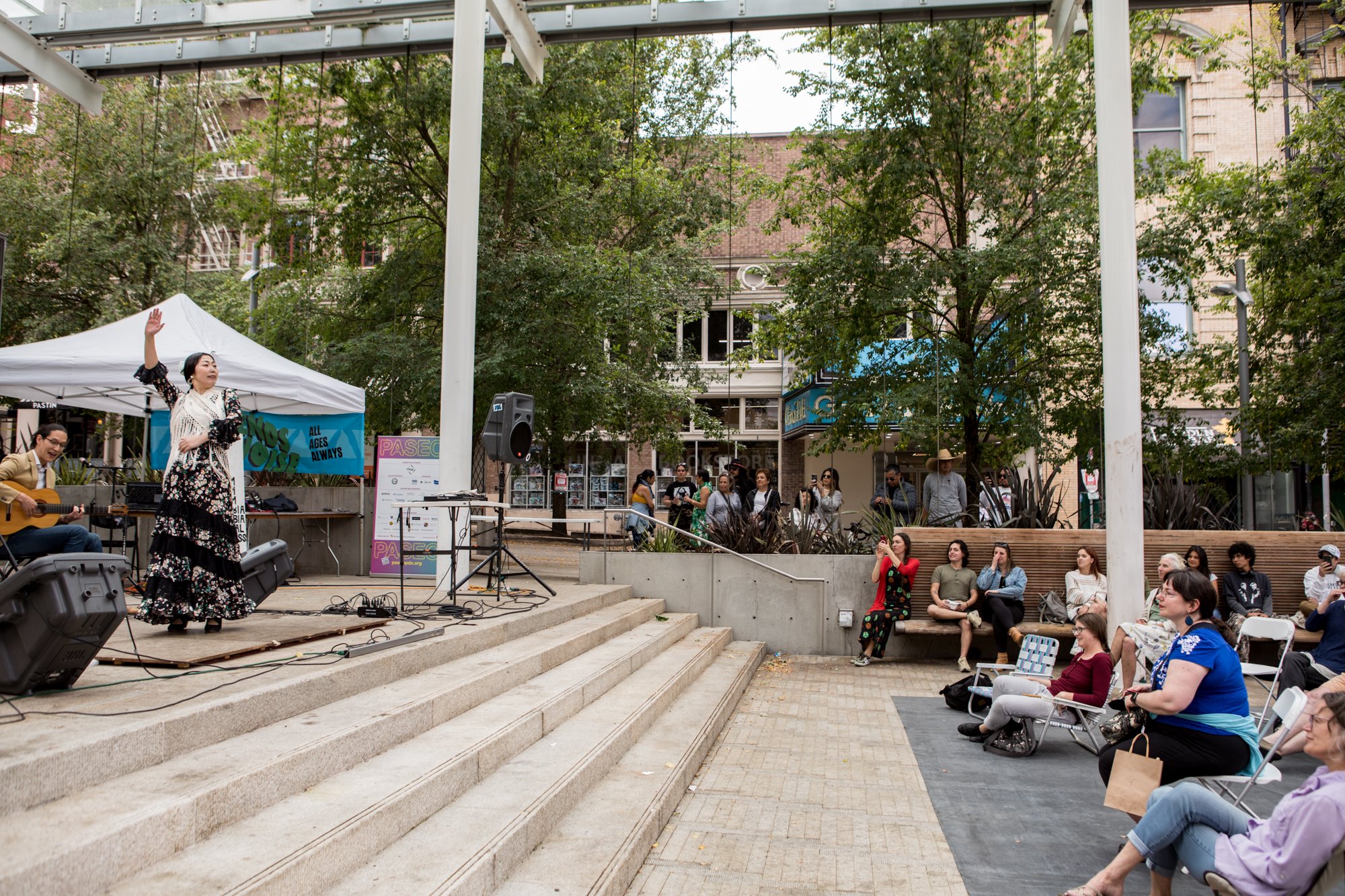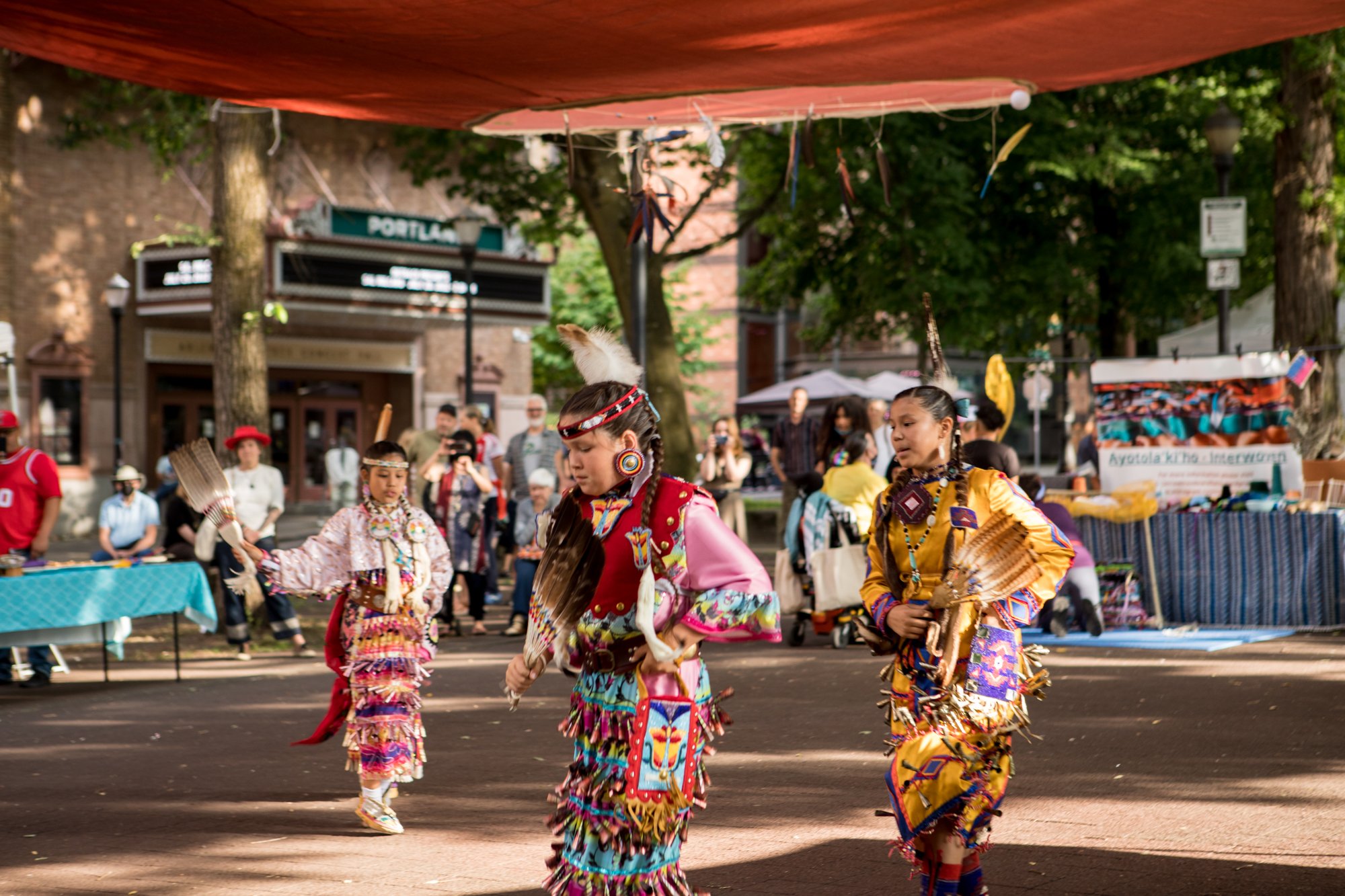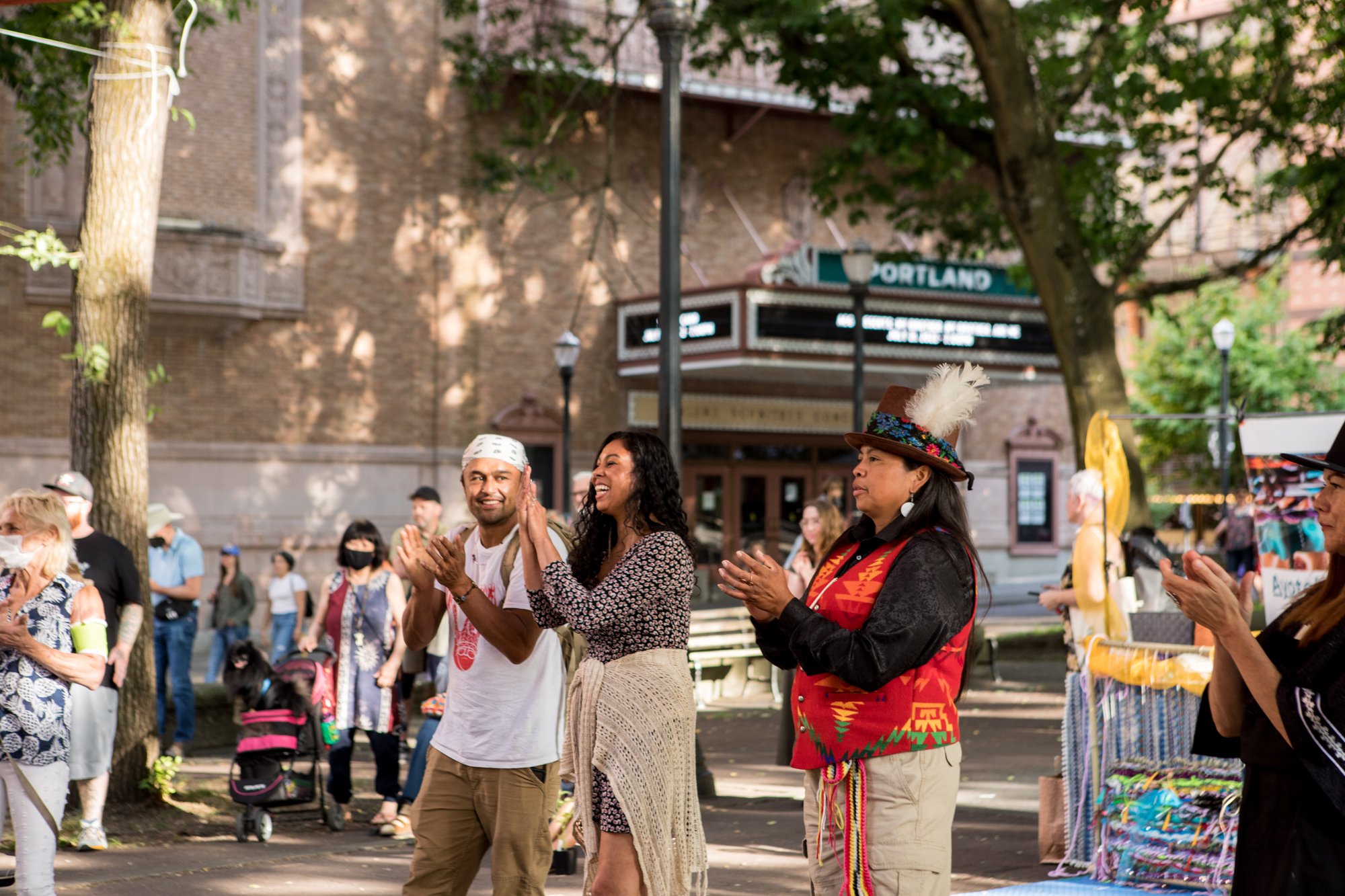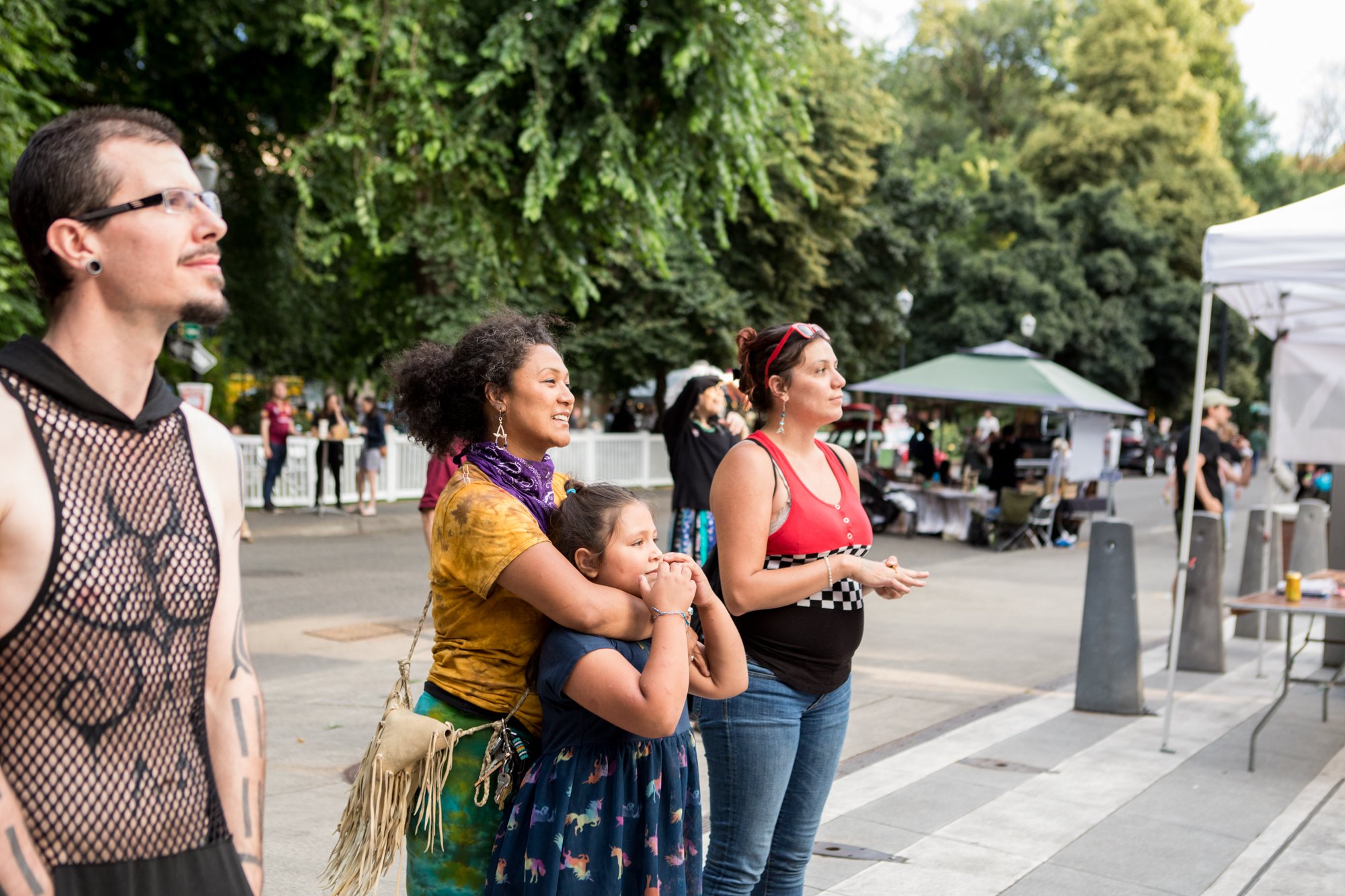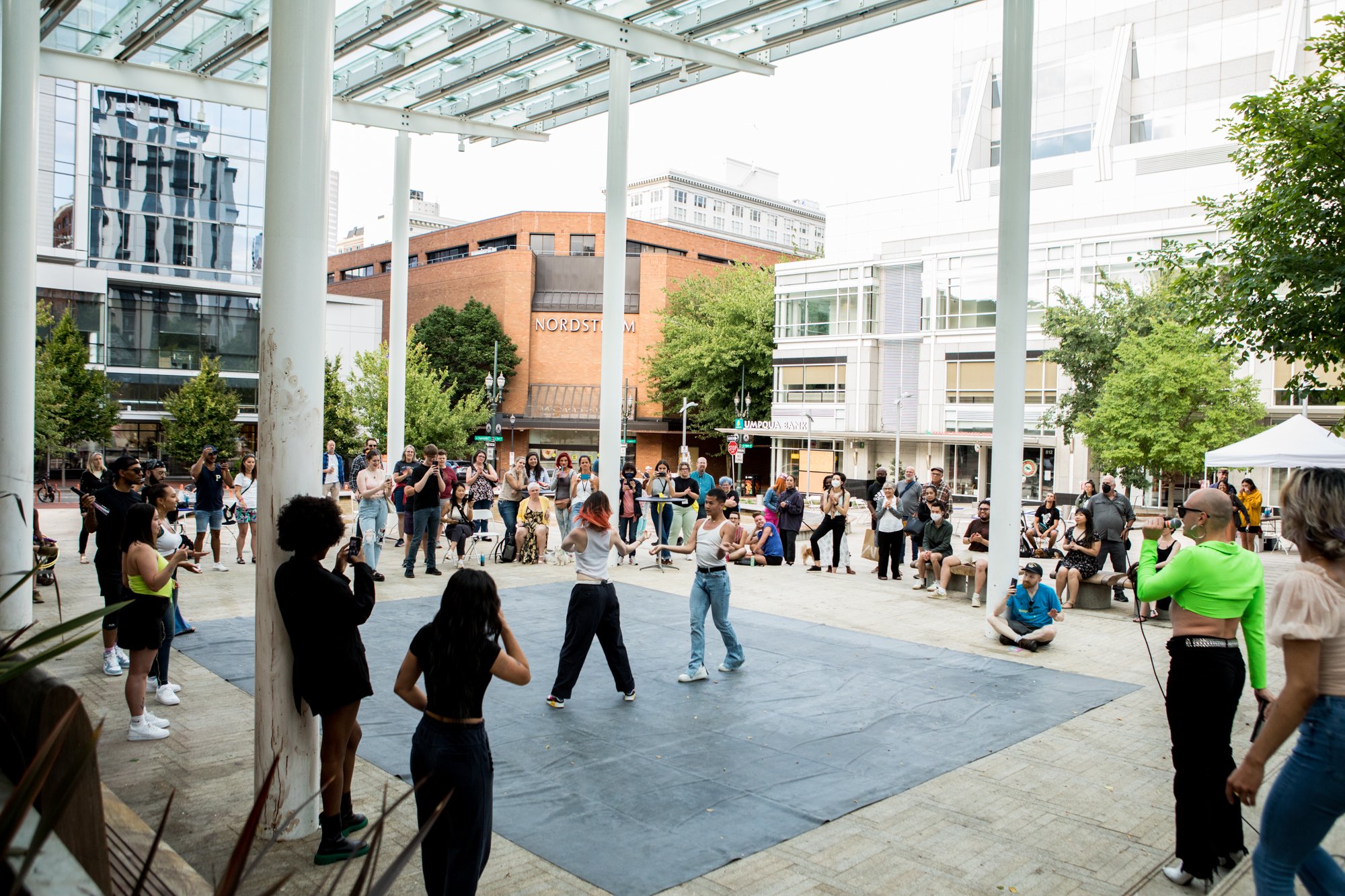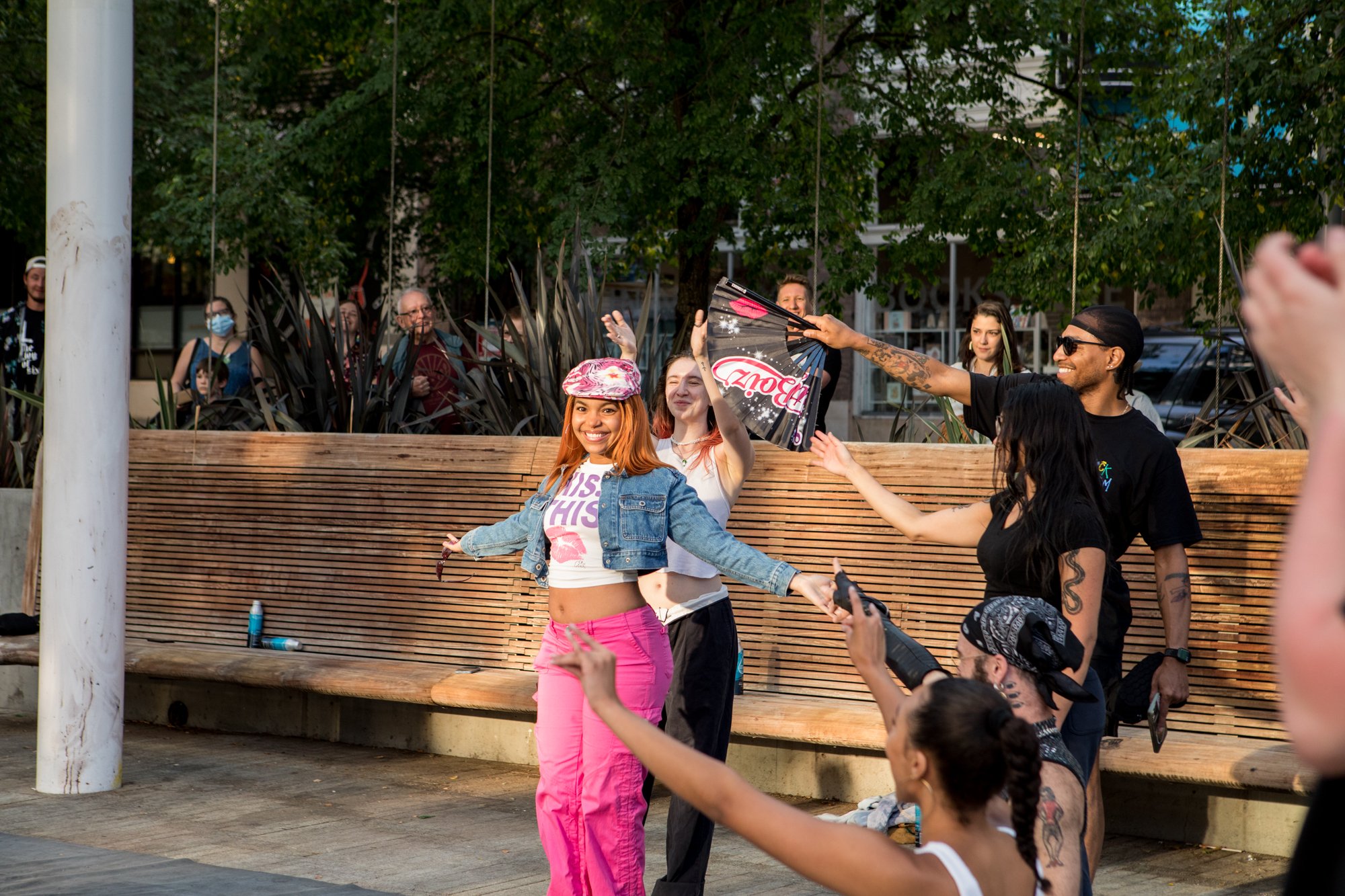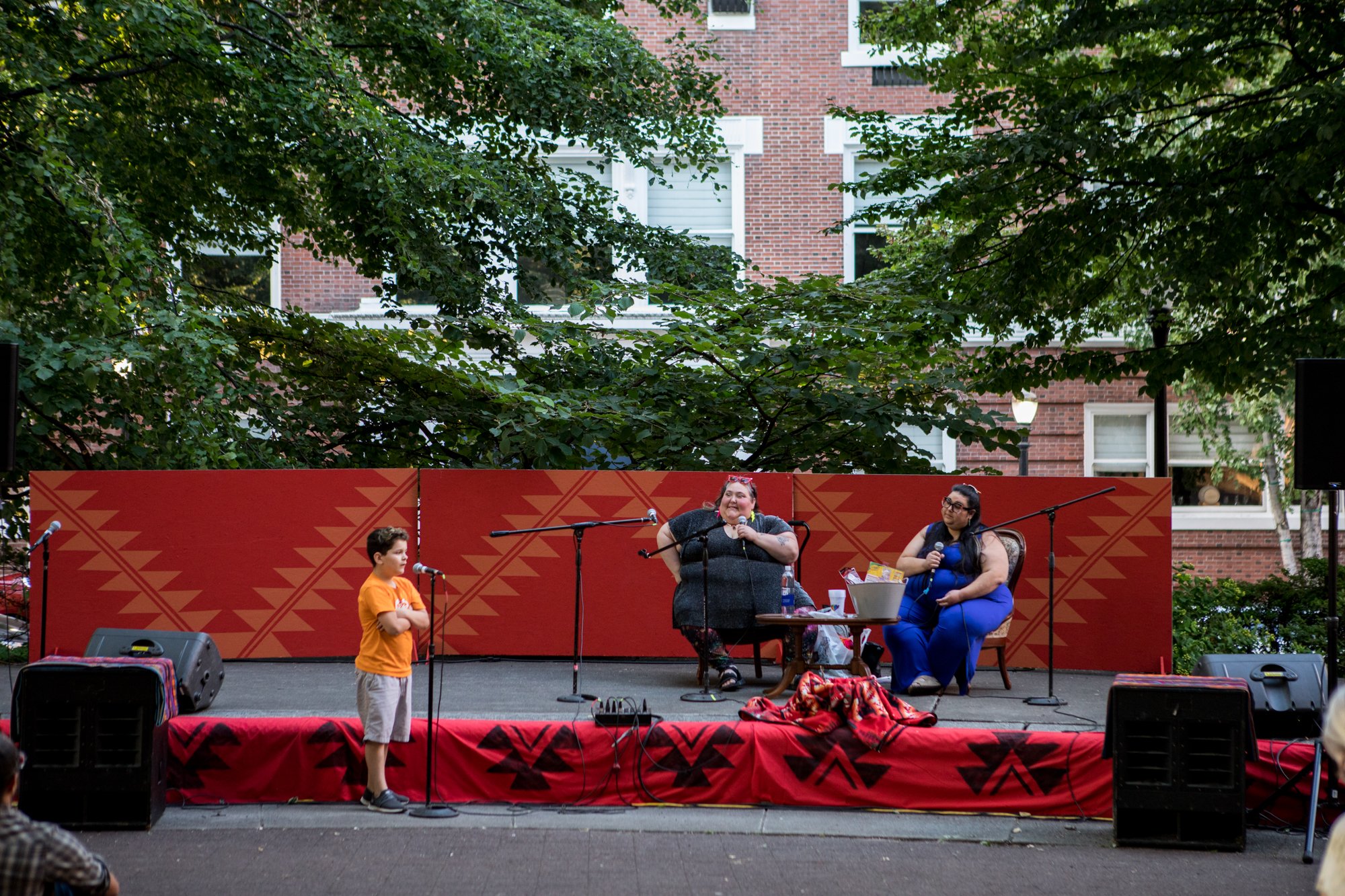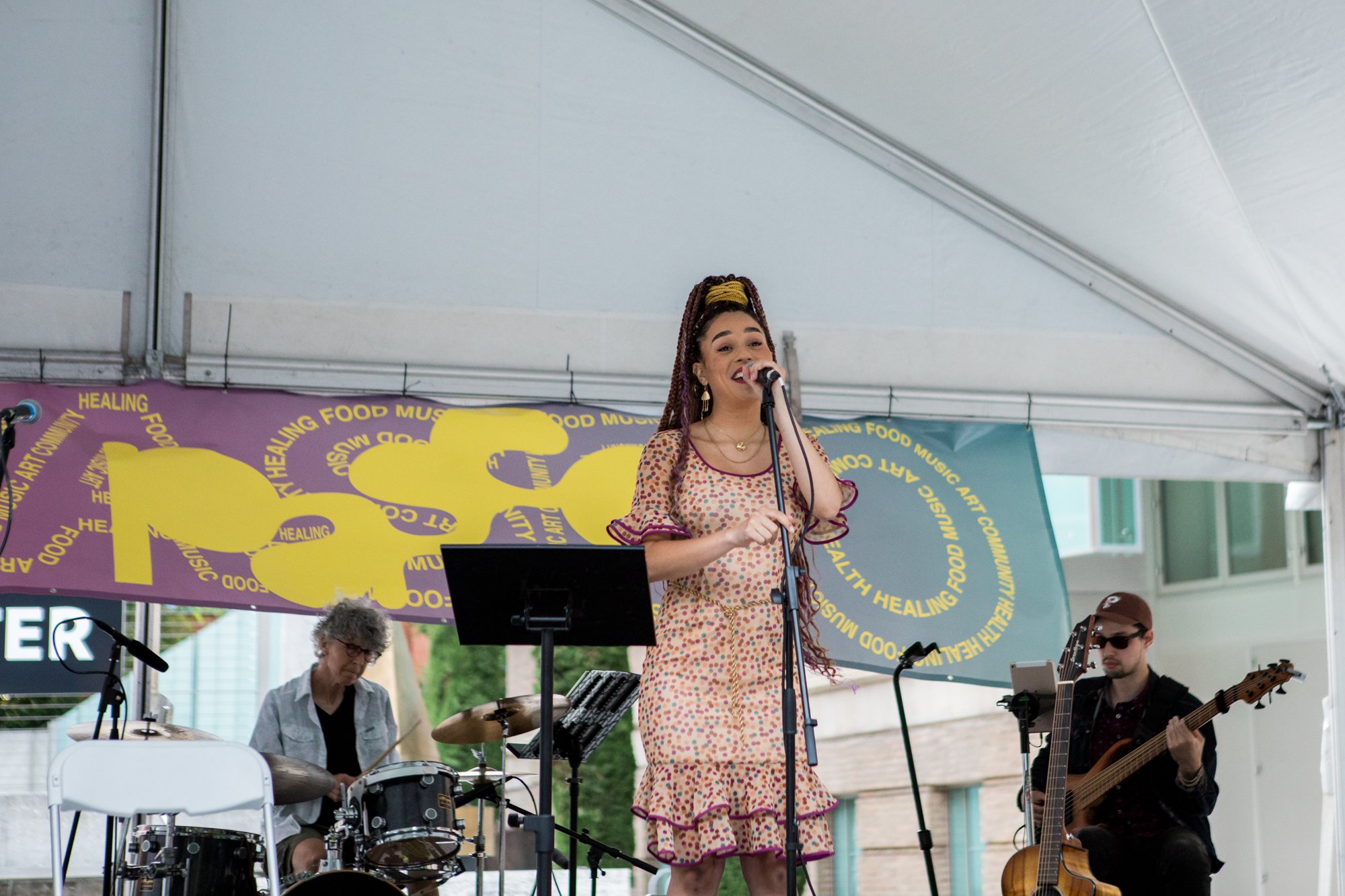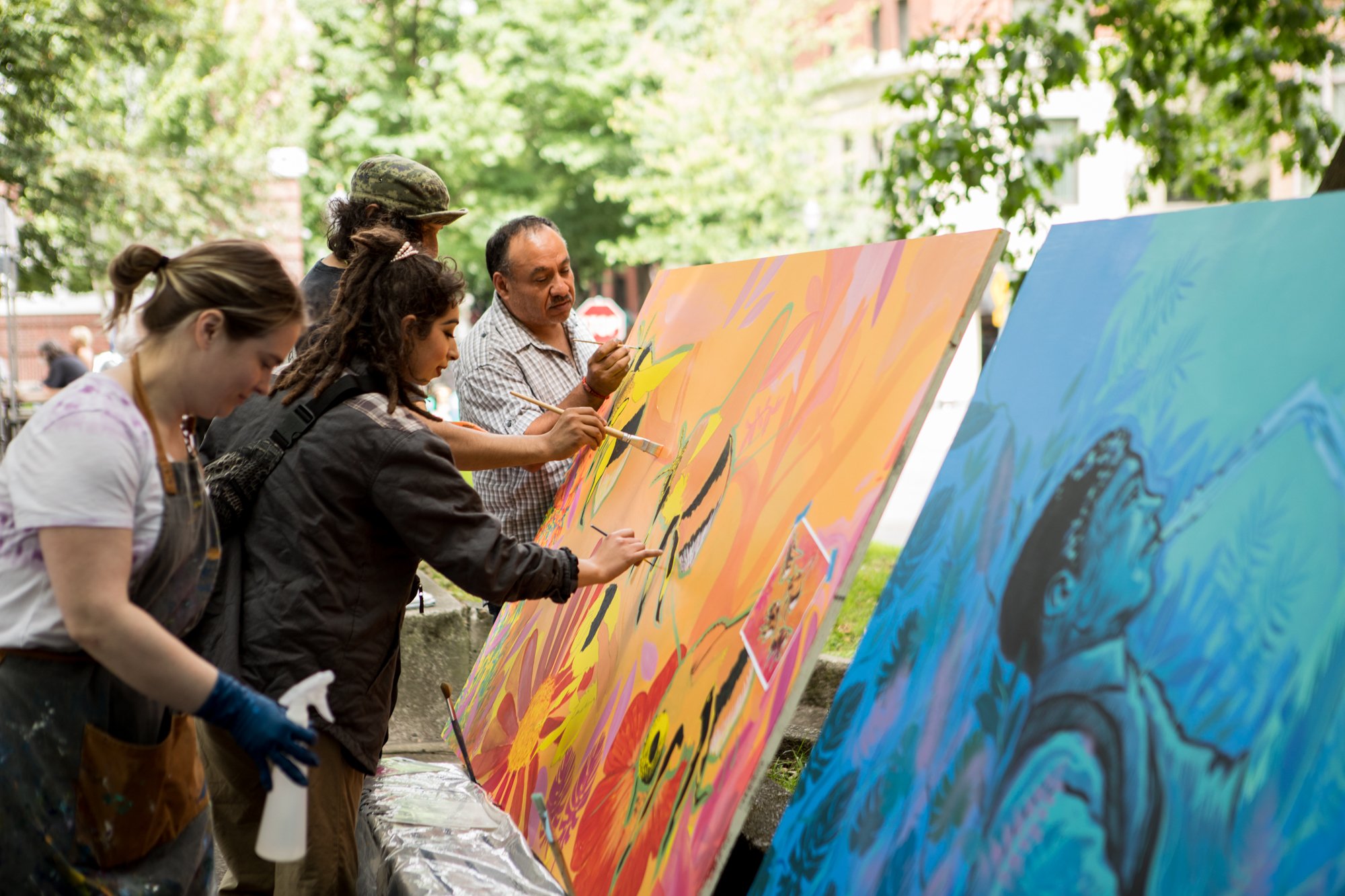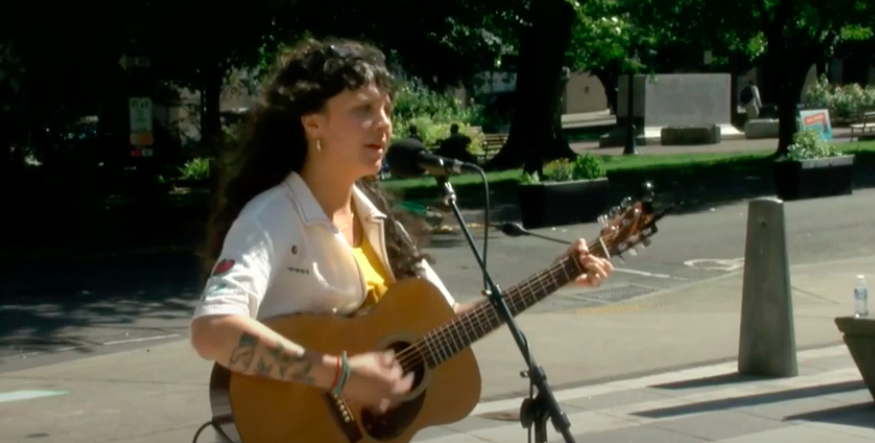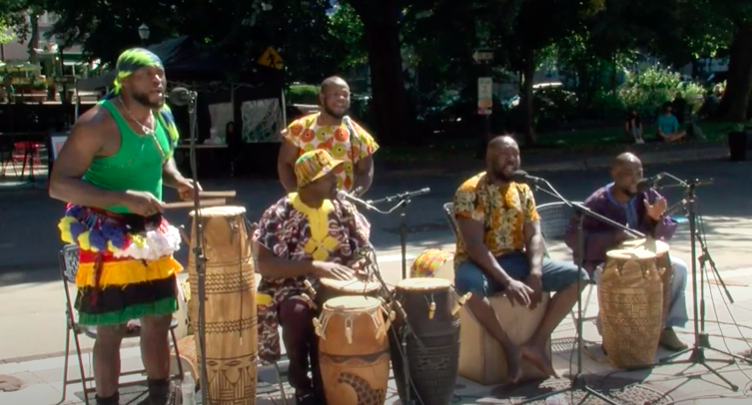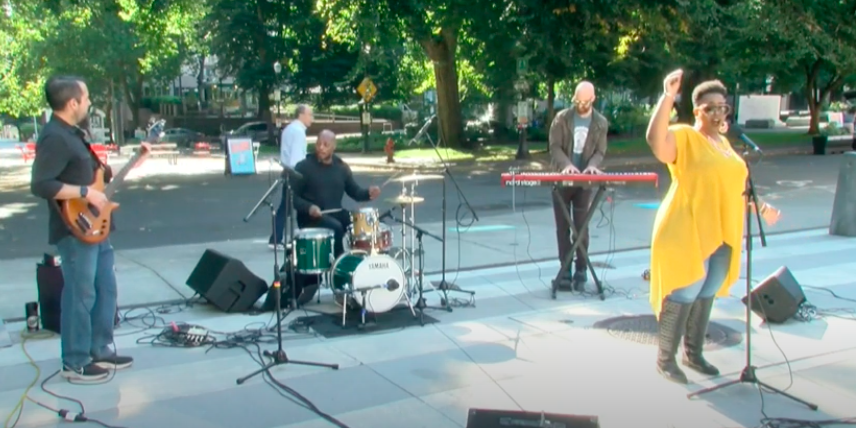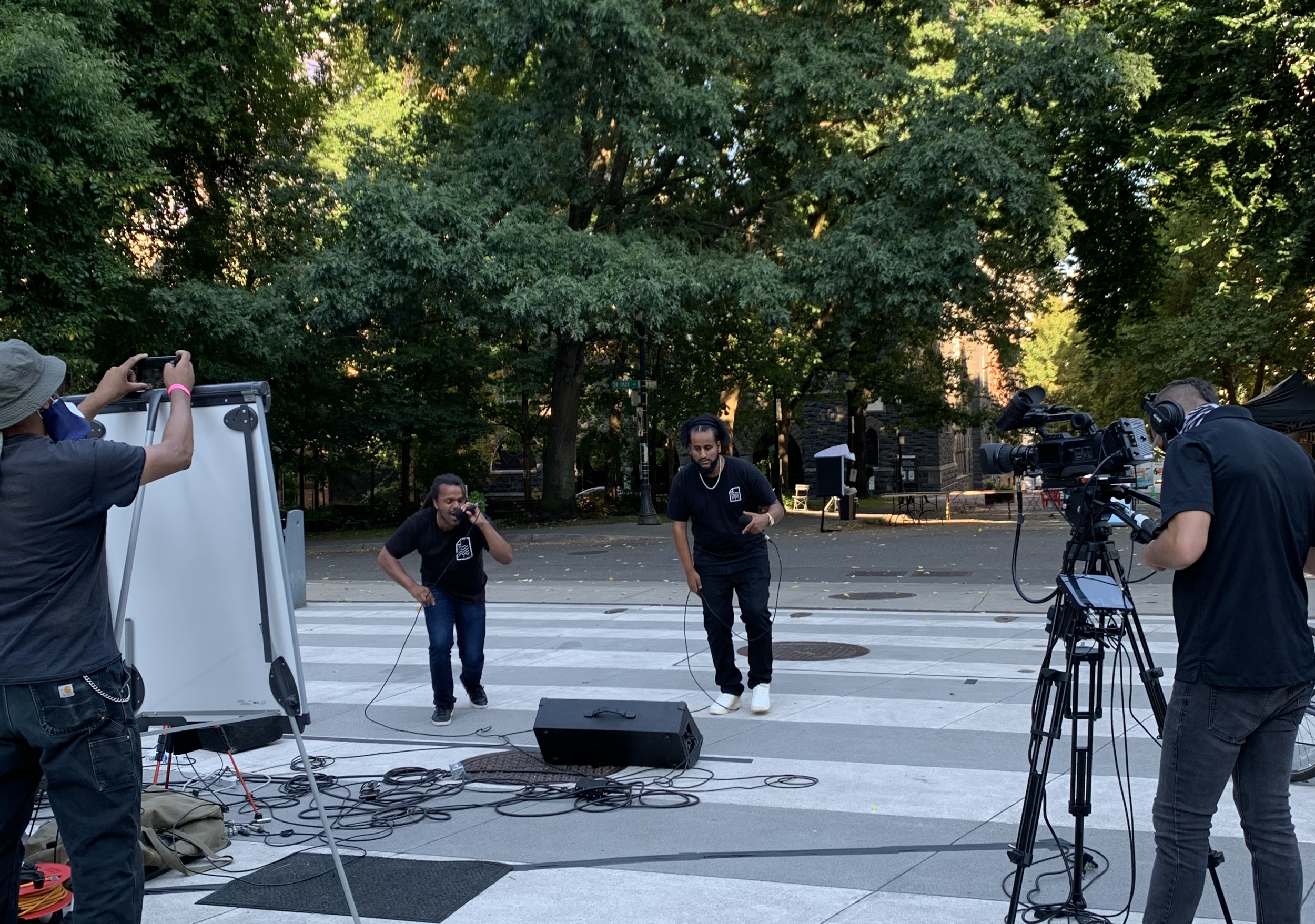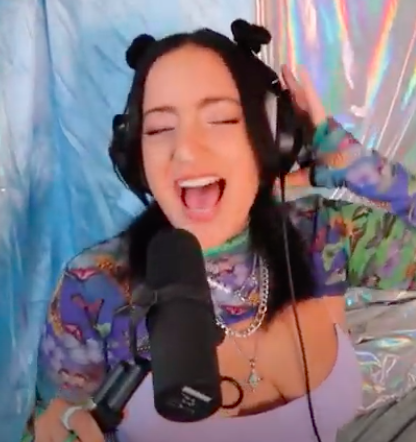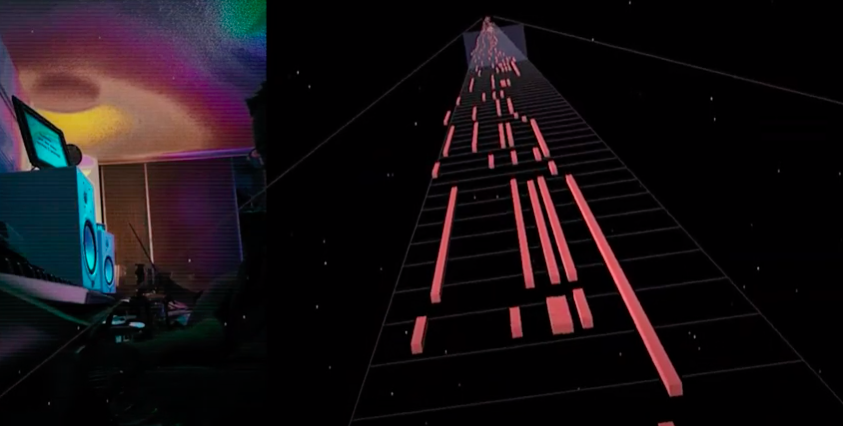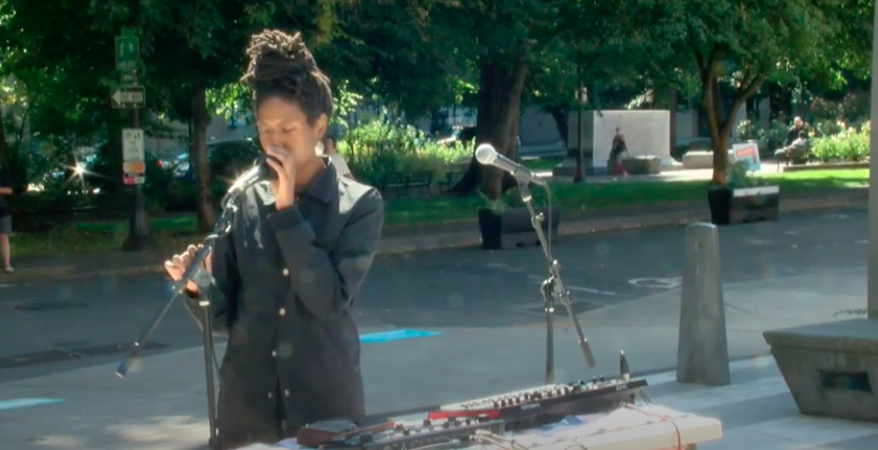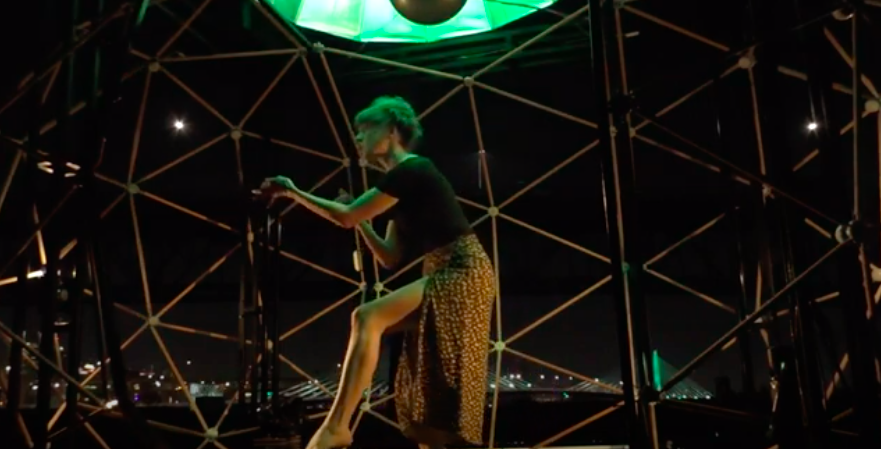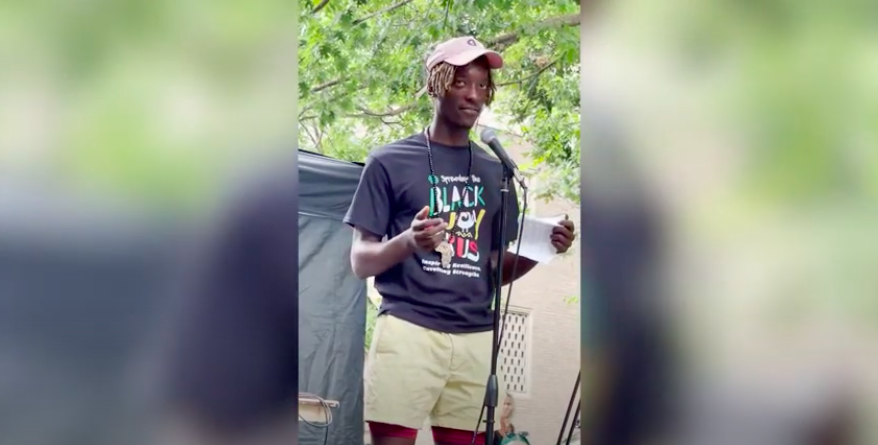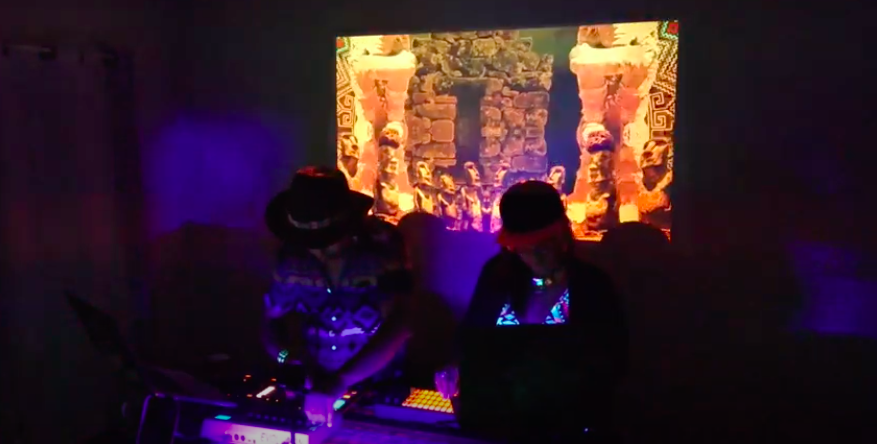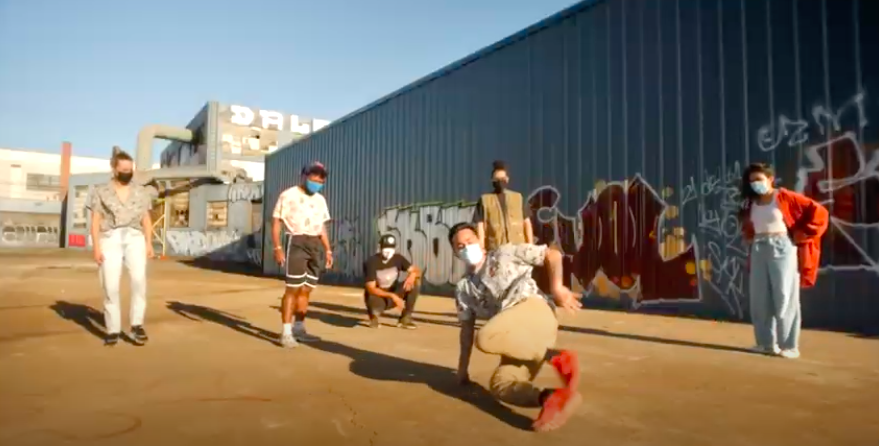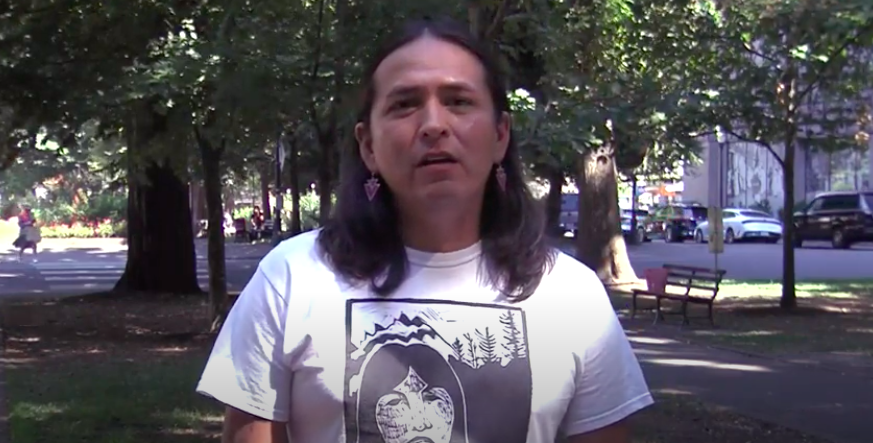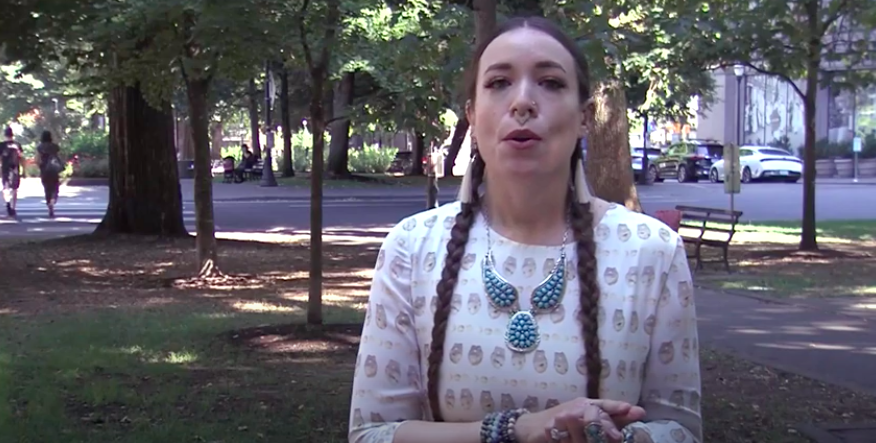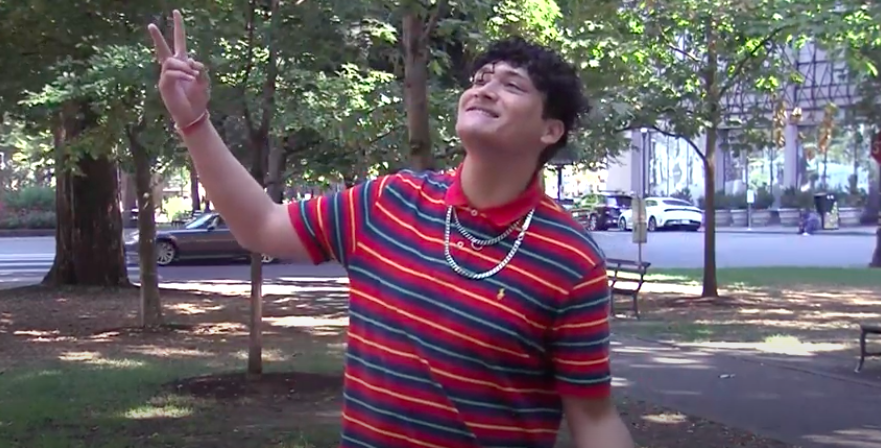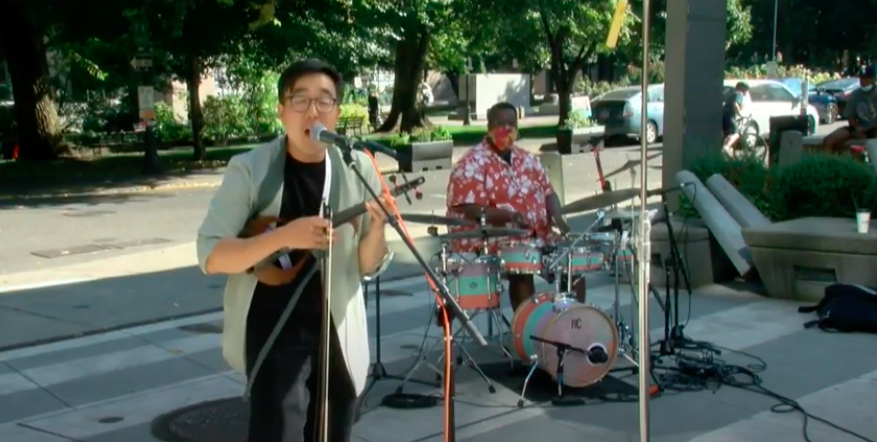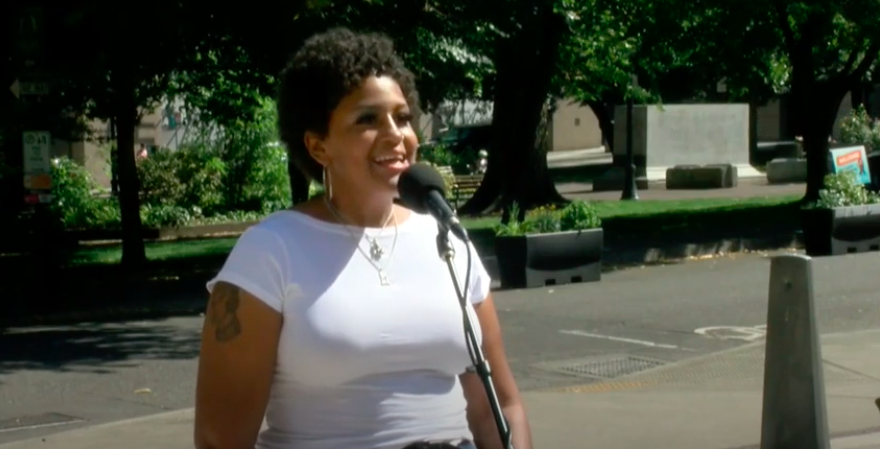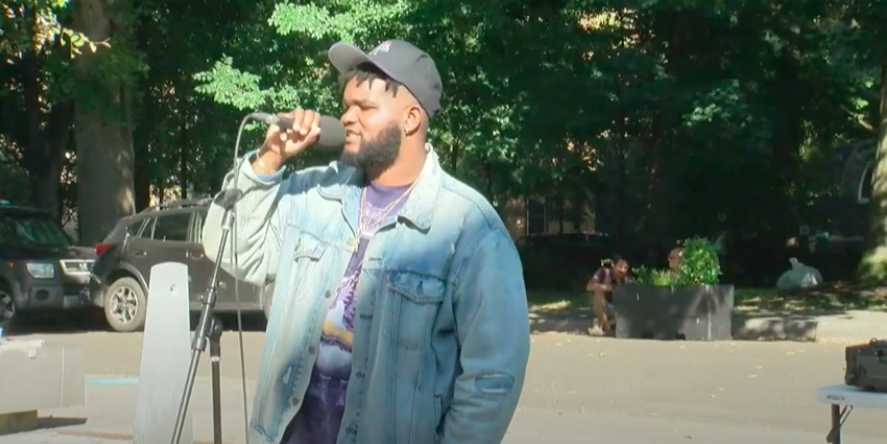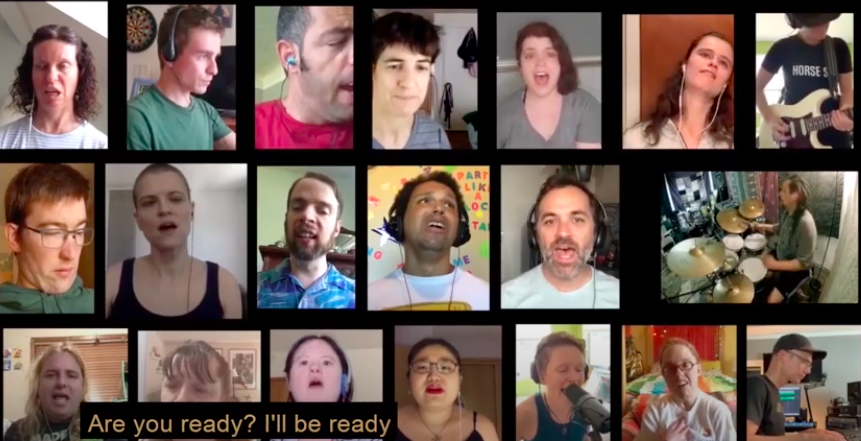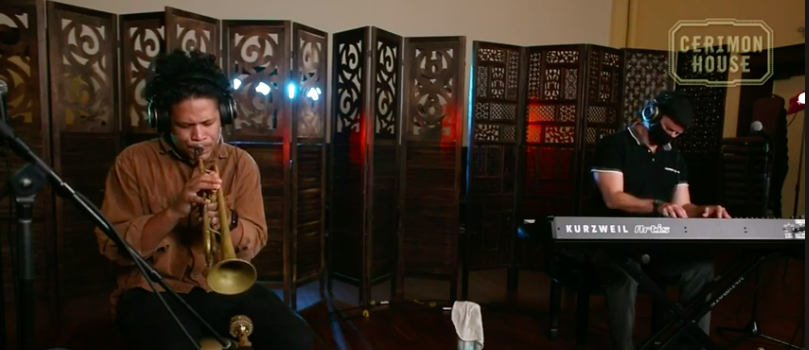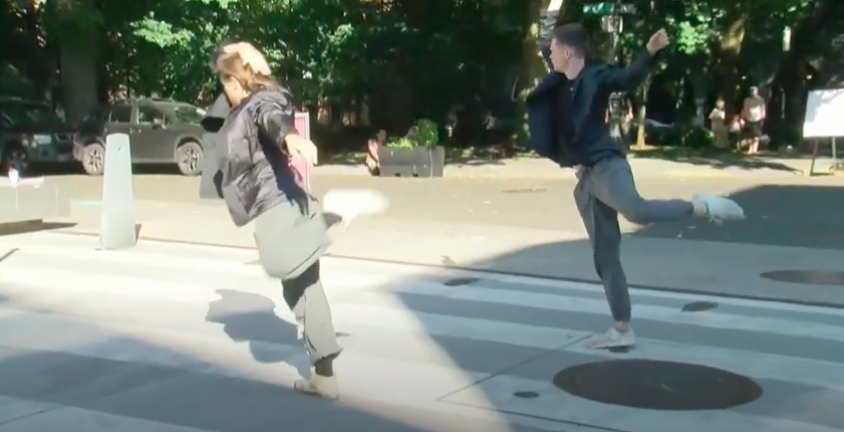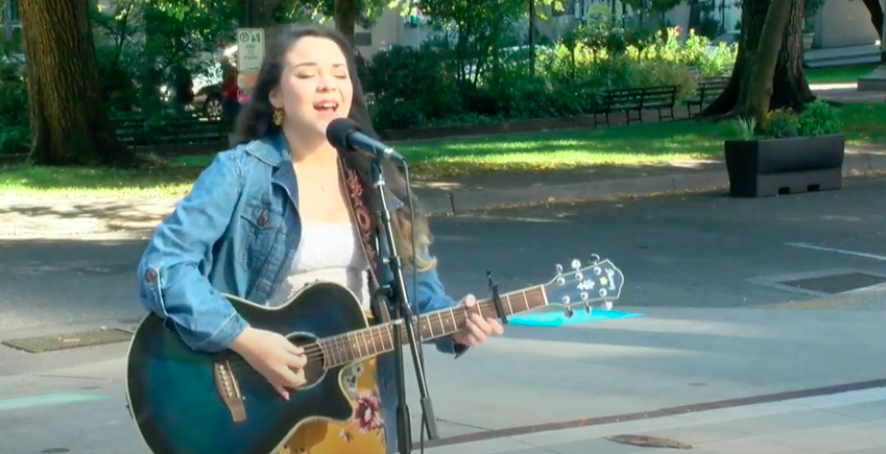What do 100 artists, vendors, community groups, grassroots outdoor organizations, and health groups create on the South Parks Blocks over a gorgeous July weekend: Paseo! Created with an amazing array of advisors, sponsors, and creative minds to celebrate community resilience, PFF’s first festival brought our oldest parks to new life.
PPF was proud to present Paseo, a new festival and community gathering, which took place July 15-17, 2022. Paseo featured music, dance, spoken word, drag, and other creative forms, along with yoga and healthful, family activities in the heart of downtown at the South Park Blocks and Director Park.
Inspired by the Spanish custom of the evening stroll that reawakens the city, Paseo was conceived and curated by a steering committee of BIPOC social justice and arts leaders. Together, we tapped creators of all ages to offer a wide-angle view of Portland's creative breadth.
Click on the picture above to watch the video and see a quick showcase of the liveliness of Paseo!
Pasoe saw all-ages acts like Teeth and Chainsaw Girl tearing up the DIY scene and mixing music and activism. For more mature fare, there was the legendary Aaron Nigel Smith. Shemanski Plaza was devoted entirely to Indigenous performers and vendors, from the storytelling of Shoshone-Bannock elder Ed Edmo to the multimedia work of the queer, disabled Taino artist AC Ramirez. Director Park featured all-ages DJ's Opal and Anjali. Dance companies like Papi Ada and the Kiki House of Ada and Hula Halau’ Ohana Holo’oko’a elevated movement art to the next level.
Photos by Celeste Noche.
Thanks to our presenting sponsor, PGE, and major sponsorship from the City of Portland and The Standard.
And a special callout to our producers, Vida en Color's Michelle Comer and Carolina Soto Nascimento, Amanda Stubits for organizing the Daa-nu'-yash space, the youth sound engineers of Friends of Noise, and the many volunteers who made Paseo happen!





